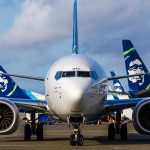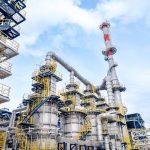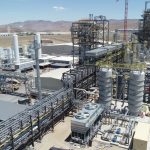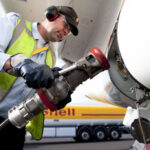A new group, the Asia Sustainable Aviation Fuel Association (ASAFA), has been launched in Singapore to help accelerate pan-Asia production and use of low carbon aero fuels. Although the Asia-Pacific region is the largest consolidated market for air travel, accounting for almost 32% of global air passenger journeys, it lags both Europe and the US in SAF momentum. ASAFA brings together a range of participants in the SAF sector, from feedstock producers to policymakers, to collectively address core challenges, including standardising regulatory policies across the region, enhancing market frameworks, and raising awareness of the fuels through initiatives ranging from monthly workshops and webinars to industry white papers. Its aim is to uniformly progress SAF development and deployment in key sub-regions including Southeast Asia, Japan, South Korea and the world’s second and third largest aviation markets, China and India.
ASAFA has been co-founded by four industry specialists, former Airbus executive Fabrice Espinosa, now the new group’s CEO, chemical engineer and sustainable transport consultant Gabriel Ho as Chief Sustainability Officer, fuels and additives specialist Dr Dietmar Posselt as Chief Technology Officer, and Hui Ling Teo, a corporate lawyer specialising in aviation finance, technology and sustainability as the group’s Director of Governance.
Founding member organisations include Korean Air; major SAF user DHL Group; SAF distributor and emergent producer SkyNRG; carbon capture and storage company 1PointFive; environmental certification group Bureau Veritas; used cooking oil collector and distributor PT Green Energi Utama; low carbon-based feed and fuel producer Marquis Energy Global; energy pricing and data supplier Quantum Commodity Intelligence; and the EU-ASEAN Business Council.
Additionally, ASAFA has signed a Memorandum of Understanding with Singapore’s Agency for Science, Technology and Research (A*STAR), which will connect members of the new group with the agency’s research institutes to help develop and implement advanced SAF technologies.
“We are placing Asia at the heart of our efforts by driving policies that resolve market inefficiencies, attract investments and establish SAF as a viable decarbonisation option for the aviation industry, making Asia a leader in SAF for net zero aviation,” explained Espinosa, a former GM for Airbus in Hong Kong, Head of Country for the company in Korea, and ex-Chairman of the Aerospace and Defence Committee of the European Chamber of Commerce in Korea.
The new group plans to develop “a collaborative ecosystem addressing the SAF value chain’s core challenges,” bringing together stakeholders ranging from feedstock providers to technology licensors, fuel aggregators, biofuel producers, airlines, investors and policy makers.
SAF development is gradually edging up across the Asia-Pacific region but initiatives are disparate and disjointed.
The world’s largest SAF production facility is operated in Singapore by global renewable energy group Neste, with capacity to produce 1 million tons per year from waste fats, oils and greases.
Some of its product has been used in Singapore, which will introduce a 1% SAF blending mandate from 2026, and plans to increase to 3-5% by 2030, while Japan and New Zealand are among other markets to import early supplies from there.
But much of Neste’s Singapore-made SAF is initially destined for Europe and North America, where demand for the fuel is already high and increasing.
Japan is progressing multiple SAF production projects ahead of a 10% blending mandate from 2030, while other projects are planned, being studied, or are underway in a range of markets across Asia and the Pacific including China, India, Thailand, Vietnam, Australia and New Zealand.
In Malaysia, the government recently announced contentious plans for the state-owned energy company Petronas to develop SAF from palm oil waste, despite bans on palm oil products in key markets including Europe.
And the Asia Development Bank has partnered with local stakeholders in the Pacific island-nation of Fiji for a feasibility study into SAF production from sugar cane.
“ASAFA’s engagement extends beyond policy reform to enhancing market frameworks that support SAF development,” said the new advocacy group.
“Through dynamic working groups comprising industry and government stakeholders, ASAFA will identify market gaps, align interests and implement measures to boost SAF accessibility and economic feasibility across Asia.
“In addition to its work on policy and market structure, ASAFA will seek to increase public understanding of SAF’s impact through tailored outreach efforts, creating a well-informed support base in the broader community.”
In many markets, a key benefit of SAF production will also be broader economic development and jobs through the conversion of local waste, particularly crop and forestry discards, providing not just recycling into alternative fuels but also a boost for the agricultural sector.

Top photo: Fabrice Espinosa, CEO of ASAFA
Bottom photo: ASAFA founders Gabriel Ho, Dietmar Posselt, Hui Ling Teo and Fabrice Espinosa at the official launch in Singapore
(Both photos: Edwin Koo for ASAFA)
Editor’s note: Hui Ling Teo of ASAFA will be speaking at the Aviation Carbon 2024 conference in London on November 25/26














More News & Features
SAF One announces new investment and technology partners for Middle East SAF project
New initiative formed to accelerate SAF adoption and production in the Pacific Northwest
EcoCeres opens new Malaysia production facility as SAF ambition in Asia scales up
Aviation, shipping and fuel leaders convene in Rotterdam to accelerate sustainable fuels scale-up
EU SAF mandates will have to be revised, predicts French oil chief
Lessons learned from the collapse of Fulcrum BioEnergy